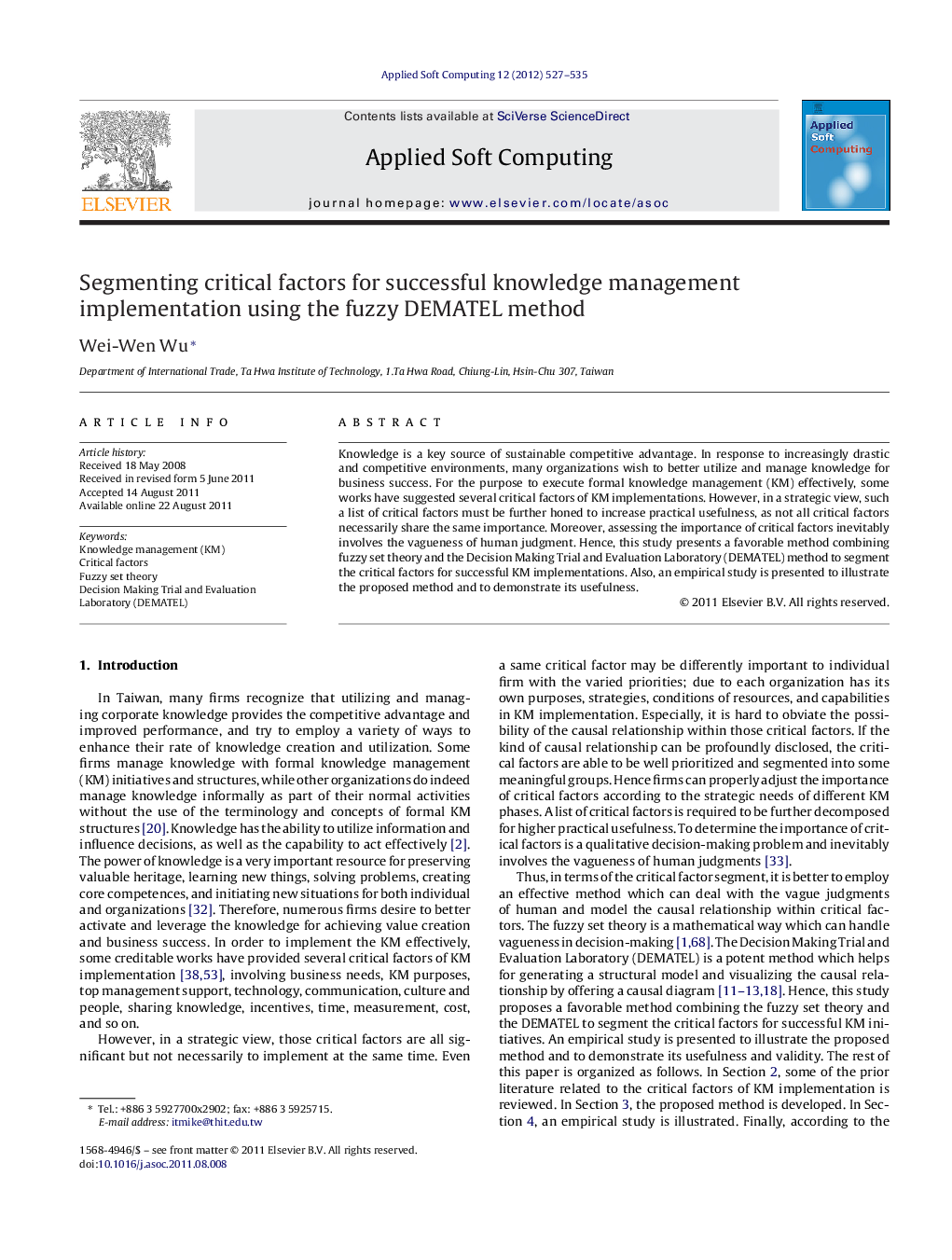| Article ID | Journal | Published Year | Pages | File Type |
|---|---|---|---|---|
| 496200 | Applied Soft Computing | 2012 | 9 Pages |
Knowledge is a key source of sustainable competitive advantage. In response to increasingly drastic and competitive environments, many organizations wish to better utilize and manage knowledge for business success. For the purpose to execute formal knowledge management (KM) effectively, some works have suggested several critical factors of KM implementations. However, in a strategic view, such a list of critical factors must be further honed to increase practical usefulness, as not all critical factors necessarily share the same importance. Moreover, assessing the importance of critical factors inevitably involves the vagueness of human judgment. Hence, this study presents a favorable method combining fuzzy set theory and the Decision Making Trial and Evaluation Laboratory (DEMATEL) method to segment the critical factors for successful KM implementations. Also, an empirical study is presented to illustrate the proposed method and to demonstrate its usefulness.
Graphical abstractLooking at this causal diagram, it is clear that evaluation factors were visually divided into the cause group (e.g., C3, C1, C5) and the effect group (e.g., C4, C11, C9).Figure optionsDownload full-size imageDownload as PowerPoint slideHighlights► A successful KM initiative requires identifying of critical factors which guide the success of KM implementation. ► It is favorable to extend the DEMATEL method with fuzzy set theory and linguistic variables for decision-making in fuzzy environments. ► The proposed fuzzy DEMATEL method worked smoothly in tackling the problem of segmenting the critical factors into meaningful groups in order to facilitate the KM initiative.
